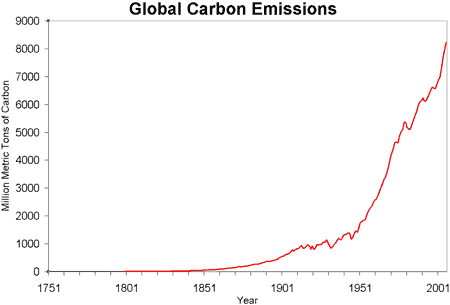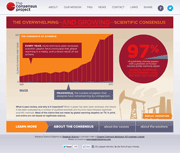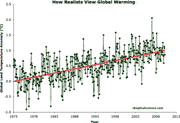Why didn't we have global warming during the Industrial Revolution?
What the science says...
Climate Myth...
We didn't have global warming during the Industrial Revolution
'Why didn’t we have global warming during the Industrial Revolution? In those days you couldn’t have seen across the street for all the carbon emissions and the crap coming out of the chimneys.' (Alan Titchmarsh)
The Industrial Revolution spanned the 18th and early 19th Century. Over this period, global CO2 emissions were a fraction of current levels. During the 18th Century, global CO2 emissions were around 3 to 7 million tonnes per year. During the early 19th Century, CO2 emissions steadily rose reaching 54 million tonnes per year by 1850. Currently we are emitting over 8000 million tonnes per year.

Last updated on 9 July 2010 by John Cook.































 Arguments
Arguments
































Alan Titchmarsh was correct when he said you couldn't have seen across the street in the early days of the Industrial Revolution for all the carbon emissions and crap- If you take Carbon emissions literally- i.e. NOT CO2; just soot!
I like the graph: it has mutiple inflection points that may serve us all well as a time guide. For instance I might like to reflect on the Keeling Curve in comparison to it, for example--> it is my opinion that the rise of China hasn't been reflected in the Keeling Curve yet though I am willing to be corrected.
I think that in the industrial revolution, CO2 started to emit rapidly but it didn't reach the point that we can detect it clearly that there is global warming. But I want to know is there other factors that cause this?
warrissaru.su
There are several factors that have influenced CO2 levels since the industrial revolution, not just CO2 from burning fossil fuels, although that is he biggest factor. Also likely other factors before the industrial revolution